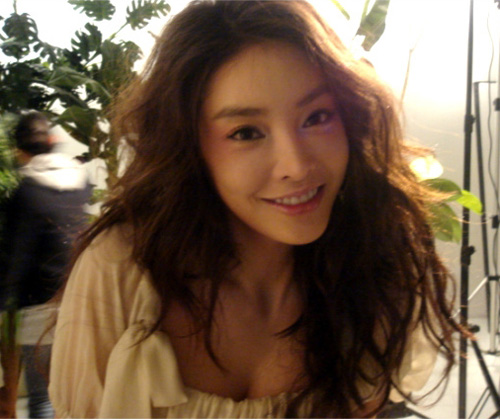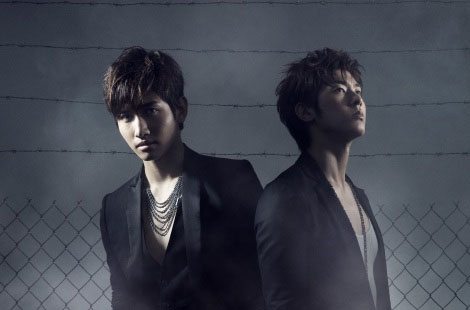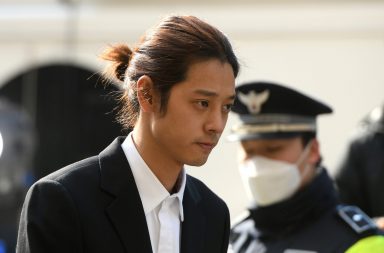If you wanna be a Kpop star, you might have to sell more than your soul to make it big.
Actress Jang Ja Yeon can attest to this—or could have, a few years ago. She found her way into the Korean entertainment business amidst the surging Hallyu Wave, making her debut in a commercial in 2006. She made her television debut on the drama Boys Over Flowers in 2009. Here she maintained her stardom until she hung herself in her family home, on March 7, 2009, at the age of 27. The reason, she wrote in a 7-page suicide letter, was due in large part to her agent, Kim Sung Hoon, who she claimed had frequently beaten her and forced her to have sex with a variety of influential men in the business.
Her suicide, and her note, led to a public outcry against the Korean entertainment industry on behalf of its most vulnerable talent—fledgling entertainers and women—who are often signed into “slave contracts” that bind them into them being overworked, underpaid, and (at least for the females) serving as concubines for the richest and most famous men in the industry. Thanks to Jang Ja Yeon, the government (at home and abroad) began to delve into the state of affairs in Korea’s entertainment business. Indeed, “sponsor” relationships turned out to not only be present, but common in the industry. In 2010, the National Human Rights Commission of Korea (with the help of the Korean Women’s Development Institute) conducted a survey of 111 actresses and 240 aspiring actresses. Two-thirds claimed they were told to have sex with luminaries. Roughly half reported they were put at a disadvantage career-wise if they declined, while a little over half said they had gained assistance in their careers when they conceded. While sex has often been used in showbiz as a bargaining tool, here the act—and the expectation—has been kept a deep, dark, dirty little secret where women have little choice but to comply. And to comply regularly, like a call girl.
To the indignation of many, it seems that little has been done to improve matters. DBSK may have disbanded and sued S.M. Entertainment for unfair treatment earlier this year—which admittedly puts pressure on big-name agencies to clear their name by abiding by the Celebrity Standard Contract created by the Fair Trade Commission—but there are still many agencies unwilling to rewrite their exploitative, soul-binding contracts. In June 2011, the NGO released a Shadow Report examining discrimination against women in Korea from 2006-2009. Despite all the publicity it received, they state that the investigation into the Jang Ja Yeon case was incomplete—of the 20 men she mentioned in her letter, only two were punished. “The truth of this case is not being disclosed… [those] directly involved…are not telling the truth out of fear. Additionally, the government is not proposing an adequate plan or an ex-officio investigation.” They proposed a re-investigation of this case, and contended that special protection should be granted to female and adolescent celebrities to guard against abuse and other impropriety.
International organizations and world-wide fans have been expressing their horror at the continuous stream of accusations coming to light from many Korean celebrities, and have been insisting that laws be put into place to ensure that these stars be treated humanely. Yet neither the Korean government nor the industry appears to harbor the same conviction. Why?
Essentially, it boils down to the enduring collectivist, male-dominant nature of their culture in conjunction with the new, rather unstable, competitive nature of the industry. It is often noted that Kpop idols and Korean thespians are major role models for Korean youth today, especially since the dawn of the hallyu. With skill and luck, these naïve youth will enter into the business, and be easily manipulated by the experienced men in charge. Women especially are at risk here, for if they fail to “perform” they may lose everything they fought to achieve. They sell their looks for money in addition to their singing and/or acting abilities. Is adding their bodies to the mix really that different?
Of course it is. But what can they do?
Americans, if given the chance, can think of a myriad of replies, but they often forget the cultural ideologies and obligations that still persist here. Women are submissive to men, and the individual second to the group. Plus, this is a small nation that has had a media explosion in the past decade. Culture is their major export. The people (and society in general) are still catching up to this influx of international popularity. This makes it even easier for greedy men to make bank at the expense of the young and defenseless. Real policy is needed, as the NGO stated in their analysis and as numerous articles have proffered in response to the ever increasing reports of mistreatment claimed by Korean stars.
Until that happens, Jang Ja Yeon’s suicide letter will act as a reminder to keep up the discourse. It will continue to give the aggrieved courage to speak out against their oppressors, and instill in the public an insatiable drive to see positive change. With enough pressure from the outside, the industry will be forced to appease us, even if it’s only to save face.




